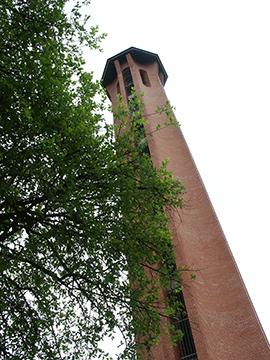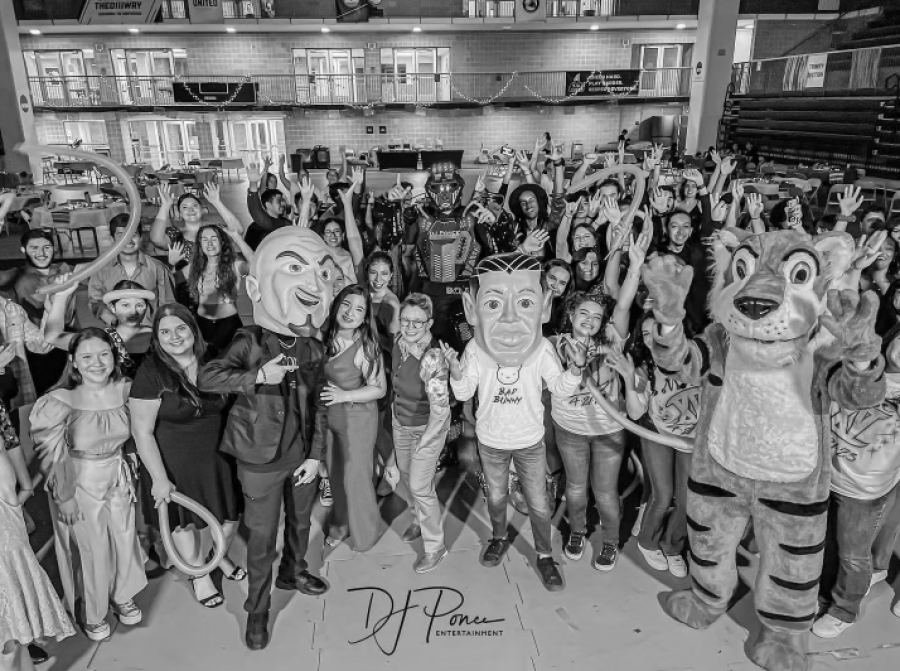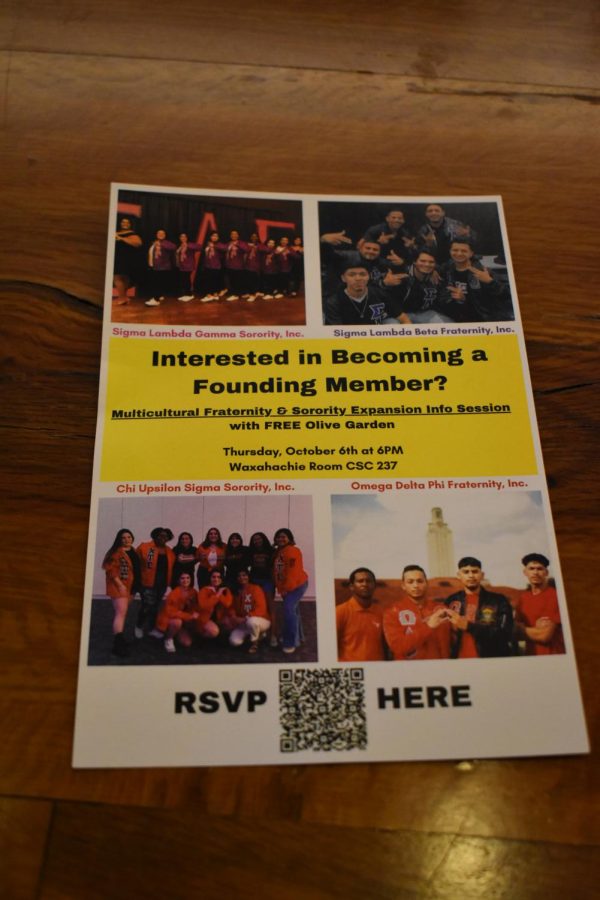The Humanities Collective hosted its inaugural Humanities Undergraduate Research Symposium in the William Knox Holt Center last Thursday.
Presenters at the symposium included winners of the Coates Library Undergraduate Research Awards, students involved with the Medieval and Renaissance Student Colloquium and summer research projects funded through the Mellon Initiative.
“One of the things that we tried to do with this humanities symposium is have a place for students to present their work that they’re doing in the humanities during the school year and on campus so other people can see it,” said Rubén Dupertuis, co-director of the Humanities Collective and associate professor of religion. “This is something we hope to do every year in the spring.”
Heather Sullivan, one of the co-directors of the Mellon Initiative and professor of modern languages and literature and international studies, hoped the symposium would give students experience presenting in a formal situation in preparation for future conferences on a much larger scale.
“The goal of the symposium was to highlight the outstanding research done by undergraduate students in the arts and humanities and to show, not just what they’re doing, but the quality of the work, and to give them an opportunity to present,” Sullivan said. “We also want to encourage more undergraduate research in the humanities and encourage them to consider presenting at more formal local, national and regional conferences “¦ For example, very soon, we have the NCUR, which is the National Conference on Undergraduate Research “¦ We wanted a campus event where students could not only present, but prepare themselves for that national event.”
One of the winners of the Coates Library Undergraduate Research Awards and presenters at the symposium, Aubrey Parke, a first year studying anthropology and communication, felt that the symposium was successful in this aspect.
“I think the idea is really good because it gives students a tangible chance to apply presentation skills,” Parke said. “It’s a wonderful idea because Trinity really encourages students to take initiative. I’m just a freshman, but just the fact that I had the opportunity to do this research, expand on this research, enter it and speak about it is a really cool thing “¦ I think it’s worthwhile to encourage students to do the research and encourage students to listen to others’ research.”
The symposium is part of a cumulative effort led by faculty to coordinate arts and humanities research, events and programs on campus. This effort is supported by the newly founded Humanities Collective, as well as the programs it oversees.
“The Humanities Collective is a new program that started this year and the goal is to promote, support and coordinate a lot of our existing humanities programs,” Dupertuis said. “We’re also creating a few new programming ideas, and one of them is this undergraduate research symposium.”
The Humanities Collective marks a new era for humanities and arts at Trinity after receiving a five-year grant from the Andrew W. Mellon Foundation in 2012 for undergraduate research and money from the university itself, adding up to over one million dollars.
“In my own past, I worked with numerous students in the summers before we had any funding and I would desperately go and get $100 or $200 here and another $50 there just so those students could have enough money to live on during the summer,” Sullivan said. “Just enough to pay, say, part of their rent and that was it. So, this was a wonderful and culture-changing application when we got the funds for the Mellon.”
The additional funding has allowed many students to pursue summer research through the Mellon Initiative and collaborate with faculty as the program continues to grow.
“It started off with something like eight people, eight faculty and students the first summer, and now we have had so many applications, up to 40 this summer, that we had to turn down a lot of them,” Sullivan said. “It’s been wildly successful. Students are getting into graduate schools, they’re getting career opportunities, they’re getting internships and they’re getting that hands-on experience at the highest level for knowledge production and high-level research, both in the community and in academics.”
In addition to the summer programs, the funding has allowed for student fellows to conduct research this coming fall semester.
“What we’ve developed is the summer program for arts and humanities students, now we want to extend that out during the year,” Sullivan said. “We have funding to sponsor three student fellows in the humanities and arts. Those students will have a stipend and a space in the library and special library privileges, like faculty, and they will get that support to further their work, doing some research during the year, working with faculty, but also being, in a way, supported like the scientists are.”
There are plans for these fellows to present at the Humanities Undergraduate Research Symposium next year as efforts to unify the humanities programs at Trinity continue.






